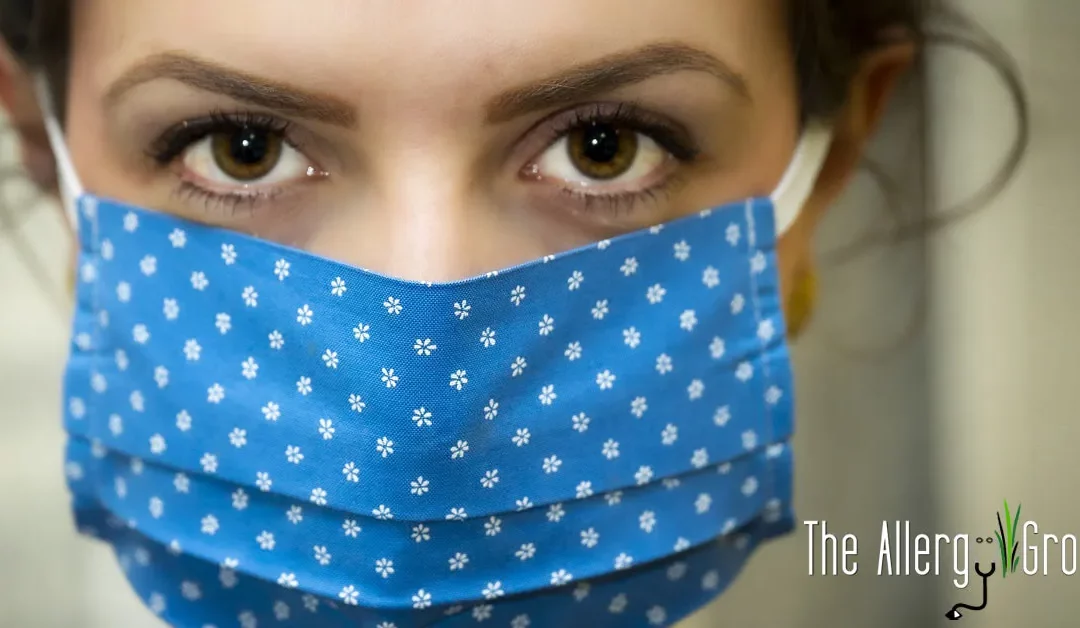A Guide to the Most Commonly Asked Questions and Answers About COVID-19 and Asthma
Are People with Asthma at Higher Risk of Developing COVID-19?
Currently there is no evidence of increased infection rates in those with asthma. And although the Centers for Disease Control and Prevention states that patients with moderate-severe asthma could be at greater risk for more severe disease, there are no published data to support this determination at this time. However, it is important to remember we are dealing with an evolving pandemic and new information could change the situation in the future. We do presently know that the symptoms of COVID-19 can mimic Asthma and Allergies.
The best thing for people with asthma during this pandemic is to keep doing what you have been doing all along—continue taking your controller medication and inform your healthcare provider of any symptoms that you may develop
Should People with Asthma Wear a Mask When in Public Areas?
As more studies have shown that a number of asymptomatic people may have COVID-19, the CDC now recommends that everyone wear a cloth face covering when in public to prevent spreading the virus. You can make your own masks from scarves, bandanas or fabric, covering your nose and mouth.
It also is still important to:
- Practice social distancing
- Wash your hands with soap and water for 20 secs or use Sanitizer.
- Always use a tissue to cover your cough or sneeze. Throw that tissue away after you use it.
- Be compliant with your asthma medication and keep your asthma under good control.
What Should People with Asthma Do If They Have Symptoms of Fever and Cough?
The best thing for people with asthma during this pandemic is to keep doing what you have been doing all along—continue taking your controller medication and inform your healthcare provider of any symptoms that you may develop.
They will ask you a few questions about your illness that will help them decide if you should come to their office, go to the emergency department, or stay at home. If possible, avoid going to work or any public places when you have a fever, so you do not spread your illness.
If I Use a Nebulizer at Home, could it Spread the Coronavirus Through the Air (Even If I Don’t Know If I Have It)?
If you need to take quick-relief rescue inhaler (such as albuterol) for an asthma episode, use an inhaler (with a spacer) if possible. Using a nebulizer can increase the risk of sending virus particles in the air if you are sick. But if you have a nebulizer and solution, it is OK to use it to treat an asthma episode. DO not share your nebulizer with anyone. When using a nebulizer, limit the number of people in the room or use it in a room by yourself.
Do Antihistamines Suppress Your Immune System and Make you More Likely to Catch A Virus Or Bacterial Infection?
Antihistamines do not suppress the immune system. They do not increase your chances of getting a virus or a bacterial infection.
Should I Stop Using Nasal Steroid Sprays?
You can continue to use nasal steroid sprays. Don’t share your nasal spray with anyone.
How Much Asthma Medicine Do You Recommend People Have on Hand?
A 30-day supply on hand is recommended. There is no need for more than that.
Does Pneumococcal Vaccine Provide Any Protection for Developing Pneumonia From Coronavirus?
No. The pneumococcal vaccine protects against a bacterial pneumonia (from streptococcus pneumonia), but it will not protect against the pneumonia that COVID-19 causes.
Read our Asthma Resource Guide
The allergy group has released a resource guide on asthma. This resource guide covers everything you need to know about asthma, and provides resources on topics like what you should do if someone has an asthma attack, what are the risk factors of asthma, and how do you know if you have asthma.Read The Asthma Resource Guide
Is There a Way for My Doctor to Know if I Have The Flu, COVID-19 or Some Other Respiratory Illness?
We here at The Allergy Group are offering Televisit or Virtual visit, where you can speak to a provider and figure out the difference between Flu, Asthma, COVID-19, Chronic Cough or another respiratory illness. We can then decide whether you need to come to the clinic or go to the emergency department or can be managed at home.
Call us at (208) 377-4000 to set an appointment at one of our several locations in Boise, East Boise, Eagle, Nampa, and Caldwell.


